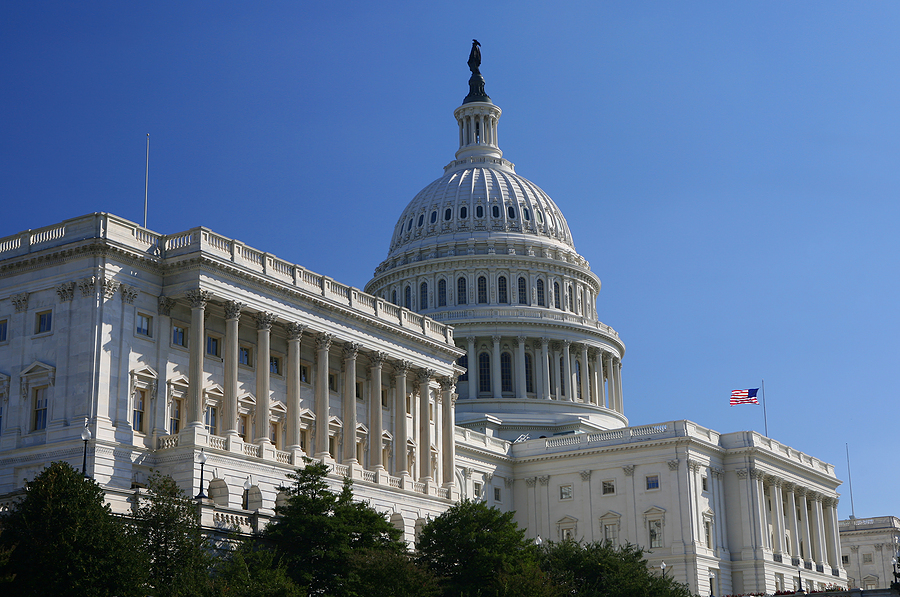A group of more than 100 centrist Democratic House lawmakers is throwing its weight behind a privacy bill that has been praised by alliances of software and internet giants.
The move is one of the first large-scale endorsements of a privacy bill in Congress. Separate efforts by Democrats in the House and Senate this year to write even stricter data regulations have produced few results.
The New Democrat Coalition on Tuesday plans to announce its endorsement of legislation proposed by one of its vice chairs, Representative Suzan DelBene of Washington State, a former Microsoft Corp. executive whose district includes the company’s headquarters.
The bill, which DelBene introduced in March, would allow consumers to opt out of the collection, storage and sharing of their data. It would require companies to get consumers to approve any use of sensitive data such as financial or health information and oblige companies to furnish “plain language” privacy policies.
The U.S. Federal Trade Commission, which enforces consumer protection laws, would get expanded authority under the proposal. The measure would overrule state statutes such as California’s strict data regime, the Consumer Privacy Act, which goes into effect next year.
“It’s very critical that we have protections for consumer privacy across our country,” DelBene said in an interview.
The New Democrat Coalition takes a more business-friendly approach than the progressive wing of the House Democratic caucus, and its members, according to the group’s website, seek to “bridge the gap between left and right by challenging outmoded partisan approaches to governing.”
DelBene’s bill has been touted by BSA | The Software Alliance, a trade group for technology companies including Apple Inc., Oracle Corp. and Microsoft, as well as the Internet Association, which counts Alphabet Inc.’s Google and Facebook Inc. as members. The main pillars of the bill — especially the preemption of state laws — echo proposals from business trade groups.
Her legislation, however, doesn’t include provisions that some other Democrats have debated, particularly in the Senate Commerce Committee, where a bipartisan working group disbanded earlier in the year. Those Democratic ideas, some of which business groups have opposed, include allowing consumers to sue companies, adding cybersecurity provisions or letting states experiment with their own approaches.
The new measure didn’t originate from the core lawmakers who were expected to produce such legislation, and will still likely determine its fate. The House Energy and Commerce Committee, which takes the lead in many areas of technological policy, has been developing its own privacy bill. So far, the committee’s efforts have yielded no text.
DelBene doesn’t sit on that committee, but said she was working with the panel and added that she sees her bill as a way to teach her colleagues about the topic.
“When it comes to issues of technology, I think folks have been hesitant to take a stand on the issue because they want to understand it more deeply,” she said.
The coalition’s endorsement of DelBene’s proposal reflects support from a majority of the group’s 104 members, among them dozens of freshmen. The group urges the lawmakers to vote “yes” if a bill that’s gotten an endorsement comes to a formal House vote. The measure had 24 official legislative cosponsors as of Monday.
In addition to DelBene’s privacy bill, the coalition endorsed a bipartisan bill to have the U.S. Department of Labor issue reports on which economic sectors will see growth in artificial intelligence, as well as a resolution to support the advancement of “guidelines for ethical development of” AI.
Topics InsurTech Legislation Tech Politics
Was this article valuable?
Here are more articles you may enjoy.



 World’s Growing Civil Unrest Has an Insurance Sting
World’s Growing Civil Unrest Has an Insurance Sting  US Supreme Court Rejects Trump’s Global Tariffs
US Supreme Court Rejects Trump’s Global Tariffs  Jury Finds Johnson & Johnson Liable for Cancer in Latest Talc Trial
Jury Finds Johnson & Johnson Liable for Cancer in Latest Talc Trial  AI Claim Assistant Now Taking Auto Damage Claims Calls at Travelers
AI Claim Assistant Now Taking Auto Damage Claims Calls at Travelers 

